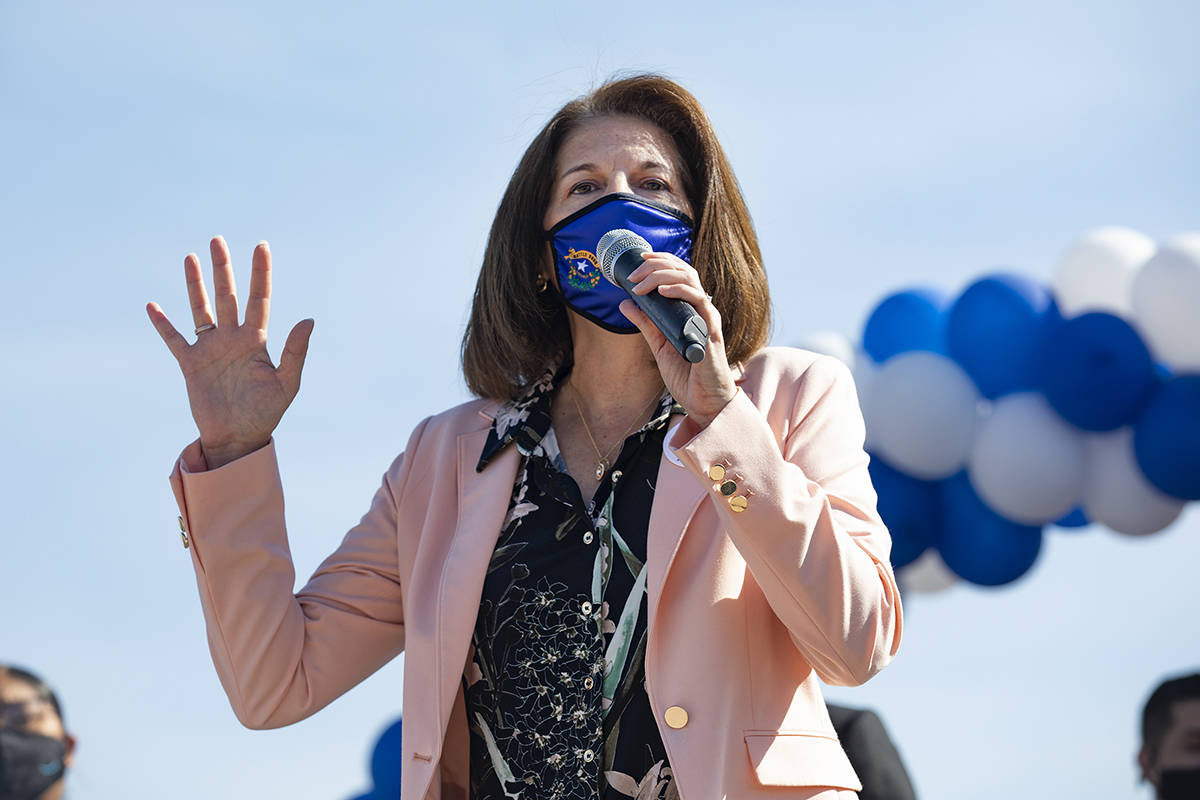EDITORIAL: Democrats want to override right-to-work laws

Big Labor is in dire straits — particularly in the private sector. The latest flop came this week in Alabama, where Amazon workers voted against joining the Retail, Wholesale and Department Store Union. It wasn’t even close: The pro-union side received just 30 percent of the votes cast.
Rather than regroup and assess why union membership has become unattractive for many private-sector workers, labor bosses will instead attempt to harness the power of the state through their Democratic congressional majorities to advance an agenda of coerced unionism.
This year, a host of congressional Democrats introduced the PRO ACT, which is a Big Labor wish list. It would overrule right-to-work laws in 27 states, including Nevada. It would eliminate secret organizing elections — which unions tend to lose — in favor of a “card-check” approach that’s easy to manipulate. It would also redefine many independent contractors, such as Uber drivers, as employees to allow unions to organize those workers.
Radical is putting it mildly.
Consider the gutting of right-to-work laws in more than two dozen states. In 2019, Nevada Democrats had full control in Carson City. But they drew a line at repealing Nevada’s right-to-work law, which would have forced nonunion members to pay for union representation they don’t want.
Union leaders don’t like workers having this freedom because it means they collect fewer dues. They claim that right-to-work allows nonunion employees to freeload on terms negotiated by the union. Left unsaid is that union bosses insist on exclusive representation because they can’t risk some employees negotiating their own competing deals that might include items such as merit pay.
Unions want to repeal right-to-work laws because, as the Amazon results typify, they’ve been bleeding membership for years as they’ve morphed into left-wing special interest groups. In 2020, just 6.3 percent of private-sector workers were unionized, compared with 35 percent in the public sector. Overall, the unionization rate for workers is under 12 percent. In the mid-1950s, more than one-third of American workers belonged to a union.
Workers are voting with their feet. They should have the freedom to do so — just as they should have the freedom to form and join unions if they so choose. But many Democrats would rather resort to force — staples of the progressive/authoritarian playbook — and do the bidding of union officials rathern than represent workers in their states.
Sens. Catherine Cortez Masto and Jacky Rosen claim to be moderates. One would hope they’d recognize the value of worker choice. But both senators are co-sponsoring this extreme bill. Reps. Dina Titus and Steven Horsford are co-sponsoring a House version.
It’s doubtful that compulsory unionism and other components of the measure would survive a legal challenge. But Nevada workers who cherish their freedom should take notice of state elected officials intent on taking that freedom away from them.